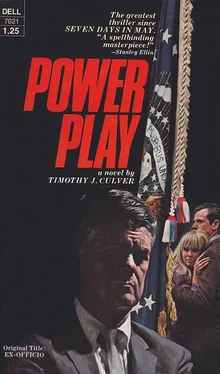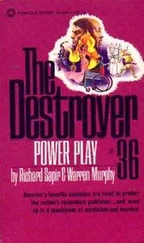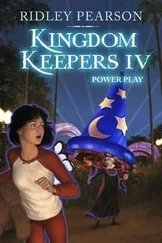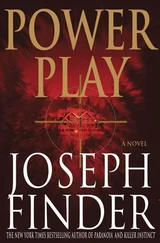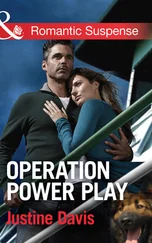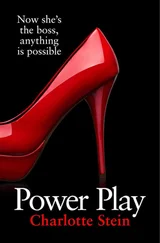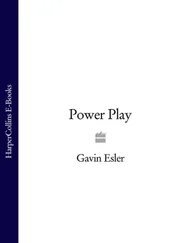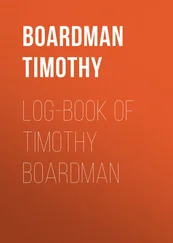Timothy Culver - Power Play
Здесь есть возможность читать онлайн «Timothy Culver - Power Play» весь текст электронной книги совершенно бесплатно (целиком полную версию без сокращений). В некоторых случаях можно слушать аудио, скачать через торрент в формате fb2 и присутствует краткое содержание. Город: New York, Год выпуска: 1971, ISBN: 1971, Издательство: Dell Books, Жанр: roman, на английском языке. Описание произведения, (предисловие) а так же отзывы посетителей доступны на портале библиотеки ЛибКат.
- Название:Power Play
- Автор:
- Издательство:Dell Books
- Жанр:
- Год:1971
- Город:New York
- ISBN:978-0440070214
- Рейтинг книги:5 / 5. Голосов: 1
-
Избранное:Добавить в избранное
- Отзывы:
-
Ваша оценка:
- 100
- 1
- 2
- 3
- 4
- 5
Power Play: краткое содержание, описание и аннотация
Предлагаем к чтению аннотацию, описание, краткое содержание или предисловие (зависит от того, что написал сам автор книги «Power Play»). Если вы не нашли необходимую информацию о книге — напишите в комментариях, мы постараемся отыскать её.
Occupation: Former President of the United States
Problem: Obsessive desire for power.
Loved and hated more than any man on earth, commanding absolute loyalty from the men and women who once had served him, defying the government he once had headed, Bradford Lockridge pursued his final and possibly insane vision of glory...
Power Play — читать онлайн бесплатно полную книгу (весь текст) целиком
Ниже представлен текст книги, разбитый по страницам. Система сохранения места последней прочитанной страницы, позволяет с удобством читать онлайн бесплатно книгу «Power Play», без необходимости каждый раз заново искать на чём Вы остановились. Поставьте закладку, и сможете в любой момент перейти на страницу, на которой закончили чтение.
Интервал:
Закладка:
Sunday night was very bad. The next morning, she and Bradford would drive to Hagerstown, would fly from there to Dulles International Airport in Washington, and from there would take a commercial flight to Paris. How long they would be gone she didn’t know, nor how long till she would see Robert again, nor where she and Bradford would travel from Paris, nor where or when their voyaging could ever finish. She needed Robert more tonight than she’d ever needed him before, and yet tonight he was at his most withdrawn. He didn’t want to talk, it almost seemed as though he couldn’t talk, that he was only capable of holding her, his arms tight around her as though in a wordless attempt to keep her from leaving. She needed words tonight, needed reassurance, but had to settle for this passionate aching silence.
She left at two in the morning, weighed down by her coat and all the clothing beneath it, Robert’s silence still nagging in her ears, and when she got into her car out front she wanted to turn it the opposite way from Eustace and just drive and drive until she passed through some force or field or barrier and became someone entirely different, someone who didn’t have all of this responsibility. Instead of which, she started the engine and set out on the well-worn track toward home.
There were two traffic lights along her route through Chambersburg, and tonight she caught the second one red. Just as it was about to turn green again, the passenger door of the Mustang opened and a man slipped into the seat beside her.
For a second she was too stunned to know what to do, and she was just reacting to the fact that he was Oriental when he said, in slightly British-accented English, “Drive on, please. Don’t be alarmed, I’m on your side.” And he gave her a smile he no doubt meant to be reassuring.
Which, in an odd way, it was. He was a slightly stocky man, middle-aged, his coarse black hair worn straight and long. He was wearing a black topcoat, and under it she could glimpse a dark suit, white shirt and narrow dark tie. The mildness of his manner and the civilized discretion of his clothing were also reassuring, but the most reassuring was his having said, “I’m on your side.” So he was one of Wellington’s men. She nodded, faced front, and pressed the accelerator. The Mustang traveled under the green light and on down the empty street.
There were now automobile headlights in the rearview mirror, about a block back. There had been none before.
The man said, “I have a message for your grandfather. It is very important. He trusts you, so we trust you.”
Fortunately, the physical tasks of driving the car helped to obscure her reaction when she understood the implications of what he’d said. He was not one of Wellington’s men!
She didn’t look at him. She kept facing front, kept driving. The headlights stayed a block back.
The man said, “The people your grandfather has been in contact with for almost three weeks are not from the People’s Republic. Certain members of your family, highly placed in government, have learned of your grandfather’s intention to visit the People’s Republic, and they are determined at all costs to stop him.”
Afraid of the trembling she heard in her voice, Evelyn said, “Are you sure?” She still faced front.
“Our people were murdered,” the man said. “The ones who were in contact with your grandfather. Renegade Vietnamese have taken their place. And now I must tell you something I regret the need to say. The man you are visiting, Robert Pratt, is not true to you. He is actually in the pay of the people who are determined to thwart your grandfather. They have hired him to make love to you and gain your confidence, in order to learn your grandfather’s plans through you.”
Now she did risk a quick glance at him, saw that he was showing the mild concern natural to a man bringing a stranger bad news, and faced front again. They had decided she was the family’s dupe, it hadn’t occurred to them she would be on the family’s side.
But how should she react to this news about Robert? If she were a dupe, wouldn’t she have to deny it? She said, “That isn’t true. Robert and I are in love.”
“It may be,” the man said gently, “that he truly believes he is acting in your best interests. Whatever the case, we have proof he is in league with those who would stop at nothing to keep your grandfather from visiting the People’s Republic. You must believe me, your grandfather’s very life may hang in the balance.”
When she looked at him now, the agitation she showed was genuine. “His life? What do you mean?”
“I mean that the President of the United States has approved the assassination of your grandfather as a last resort, rather than permit him to embarrass your nation by visiting mine.”
“But they wouldn’t—”
“They have. Please communicate this message to your grandfather, and let him decide for himself whether or not to trust it. This plan to travel to Paris is very dangerous. There is strong reason to believe they intend to murder your grandfather in the course of the journey.”
Could that be true? Wellington’s face, closed and inaccessible, appeared before her. She touched the brakes without thinking, and turned a pleading look on the man beside her. “Is that true? Are you just trying to scare us, or is it true?”
“I am sorry to say it is true,” he said. “And now I had best depart from you. If you will stop along the road here—”
She thought for a flickering instant of accelerating, driving him to some police station, or back to Robert, somewhere, and have men force him to tell whether or not it was the truth. But it was impossible — the headlights still swam in the rearview mirror — so she braked to a stop, and the man smilingly wished her good night before stepping out of the car.
v
Sitting in the car, well back in darkness, Evelyn gnawed the knuckle of her left thumb and watched the brightly-lit phone booth in front of the closed gas station across the way. All around her, the town of McConnellsburg, twenty-two miles west of Chambersburg, was dark and silent.
She had continued to drive toward Eustace after the Chinese had gotten out, but when she was sure she wasn’t being followed she’d gone on through Eustace to Metal and had then taken the back roads down to McConnellsburg, where she’d finally found a phone booth. She’d called Robert and told him where she was, and he’d promised to be there in twenty minutes.
It was twenty-five minutes before she saw the headlights coming from the right. She pressed back against the seat, and at the same time reached out her right hand to the ignition key, ready to start the engine and get out of here if anything had gone wrong.
She recognized the Jaguar when it pulled to a stop beside the phone booth, recognized the shape of Robert when he climbed from the car. He was alone, and he didn’t seem to have been followed. Nevertheless, she waited. It no longer seemed possible to trust anyone, and she waited.
Robert walked around the phone booth, looking this way and that, and then just stood there, obviously baffled. Evelyn watched him, no one else appeared, and finally she flicked her headlights on and off, just once. His head turned at the flash of light, and after a second he came across the road toward her, moving cautiously and looking constantly to left and right. So he, too, was mistrustful.
He was almost on top of the car before he recognized her through the windshield, and then he came quickly around and slid into the passenger seat, the interior lights clicking on when he opened the door and then off when he’d shut it again.
In darkness, he said, “What is it? What’s the matter?”
Читать дальшеИнтервал:
Закладка:
Похожие книги на «Power Play»
Представляем Вашему вниманию похожие книги на «Power Play» списком для выбора. Мы отобрали схожую по названию и смыслу литературу в надежде предоставить читателям больше вариантов отыскать новые, интересные, ещё непрочитанные произведения.
Обсуждение, отзывы о книге «Power Play» и просто собственные мнения читателей. Оставьте ваши комментарии, напишите, что Вы думаете о произведении, его смысле или главных героях. Укажите что конкретно понравилось, а что нет, и почему Вы так считаете.
